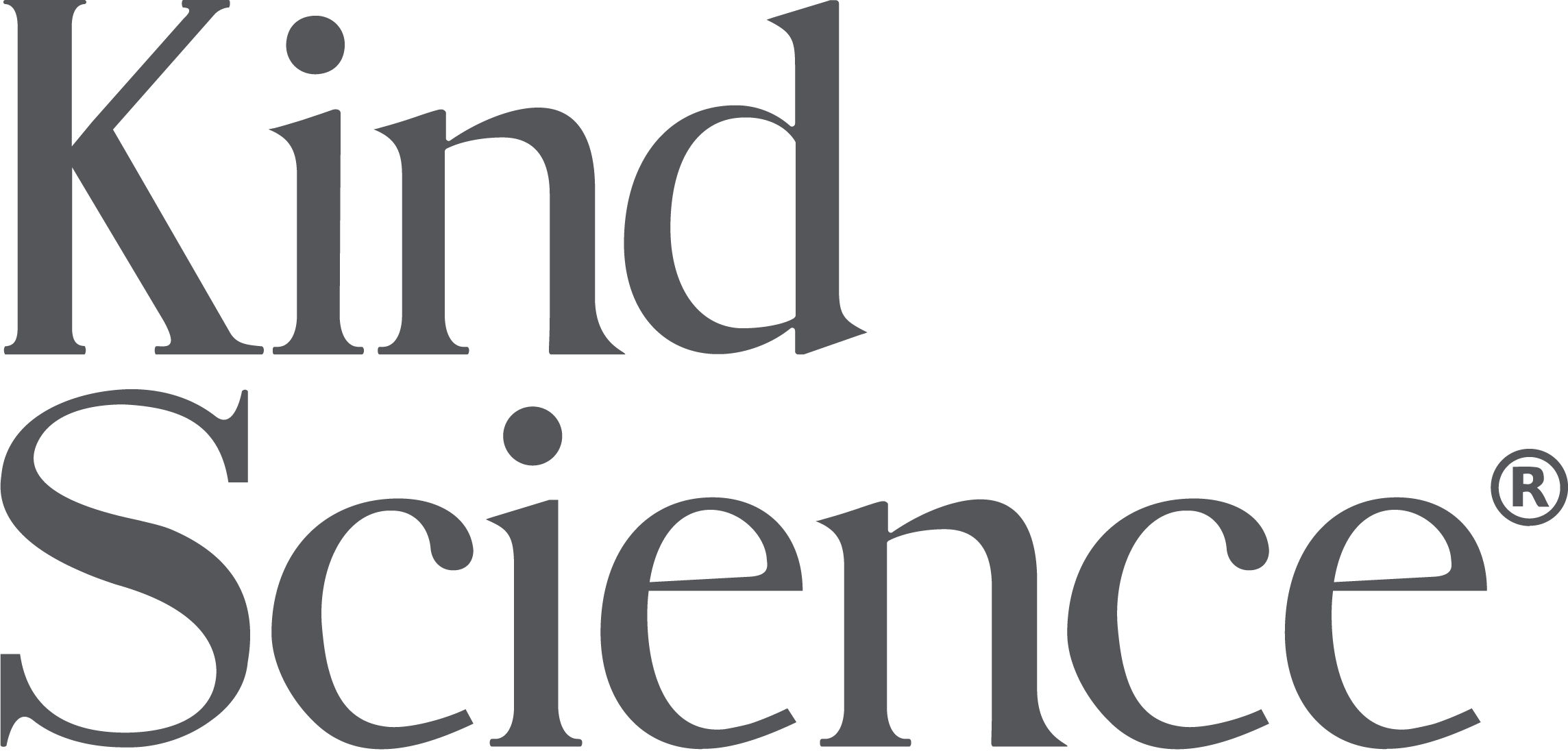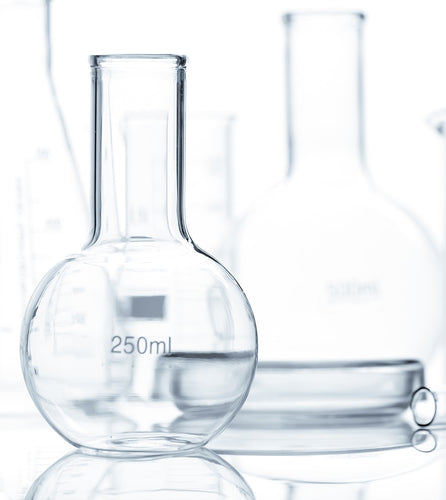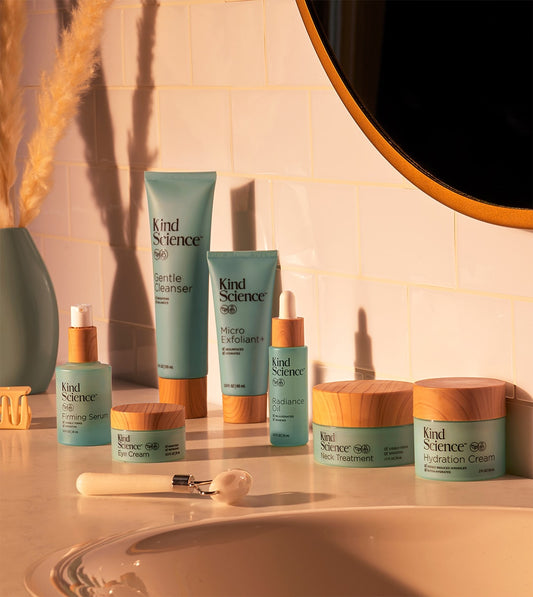Should You Use Retinol
(or Retinol Alternatives)?

In the world of skincare and cosmetics, you've likely heard of retinol. It's one of the most commonly-used skincare ingredients in the world and featured in creams, serums and oils.
But what is retinol? How does it work? Is retinol good for your skin type and should you use it? Retinol is not for everyone and there are alternatives that can offer the same benefits without any side effects. In this guide, we'll cover all you need to know about retinol, while also introducing the retinol alternative, bakuchiol.
First, What Is Retinol?
Let's begin with a quick definition. Retinol is a form of vitamin A, and many dermatologists and skin experts see it as one of the most potent and effective ingredients for treating various skin concerns, from acne to wrinkles. It was once only available through professional dermatological treatment, but these days, it can be found in lots of skincare products that are accessible to all.
How Does Retinol Work?
The Science of Retinol
So, how does retinol work from a scientific perspective? Well, unlike many other skincare solutions, which focus on cleaning the skin and removing dead cells to allow the newer cells underneath to flourish and thrive, retinol works quite differently. It penetrates deep into the skin, right down to the dermis layer.
There, in the dermis, or central layer of skin, retinol takes effect by neutralizing free radicals and improving the production of skin-strengthening proteins, like elastin and collagen. This results in the skin becoming plumper and fuller, which can help to fill out fine lines and wrinkles, as well as minimizing the appearance of enlarged pores.
Why Use Retinol: The
Benefits of Retinol
Retinol can offer a wide range of benefits, which is why it has become one of the most popular, go-to ingredients for skincare brands around the world. Here are some of its main advantages:
- Fighting the Signs of Aging - Retinol can help to fill in fine lines and wrinkles that appear with age.
- Texture - Retinol can help the skin achieve a smoother and softer texture.
- Pores - This ingredient can also help to clear out pores and reduce the size of large pores.
- Tone - Retinol may also aid with evening out skin tone.
Who Should and Should Not Use Retinol: The Side Effects of Retinol
Unfortunately, despite all of its beneficial properties, retinol isn't perfect. Like many other skincare ingredients and chemicals, retinol comes with a range of possible side effects and can be quite harsh to the skin, especially if used in large quantities. Some of the common possible side effects of this ingredient can include:
- Redness of the skin
- Itchiness
- Peeling or flaking skin
- Dryness
There are also some less common side effects that a small number of users may experience, which can include:
- Acne breakouts
- Eczema flare-ups
- Discoloration of the skin
- Blisters
- Skin pain
- Skin swelling
You may be at an especially high risk of retinol side effects if you have sensitive skin, as some people with this skin type tend to react badly and struggle with redness and itchiness when exposed to certain ingredients.
Those with dry skin and other skin types can also suffer side effects, and many people who notice redness or irritation worry that they may not be able to experience the unique benefits that retinol can provide. However, there is a retinol alternative: bakuchiol.
Bakuchiol: Nature's Retinol Alternative
If you're looking for a retinol alternative, bakuchiol could be exactly what you need. Bakuchiol is a plant-derived skincare ingredient that has lots in common with retinol and has been described by experts as "nature's retinol".
Bakuchiol is sourced from the leaves and seeds of a plant called Psoralea corylifolia, or the babchi plant. It's a powerful antioxidant that can battle free radicals within the skin to promote the reduction of fine lines and wrinkles, as well as offering other benefits.
What Does Bakuchiol Do?
Bakuchiol's main function is battling free radicals, which helps provide a smoother and more supple texture.
Free radical damage can intensify the aging process and have various negative skin effects, like triggering the appearance of fine lines and dry, uneven skin, but bakuchiol works to battle them away.
Benefits of Bakuchiol for Skin
In terms of benefits, bakuchiol offers a wide range of unique advantages that make it one of the most powerful and effective plant-derived skincare ingredients. Here are just some of the benefits of this special ingredient:
- Fine Lines and Wrinkles - Bakuchiol is very effective at fighting the signs of aging, making fine lines and wrinkles appear less visible and contributing to a more youthful appearance of the skin.
- Texture - Bakuchiol also has properties that help to smooth the skin's texture, making it more pleasant to touch.
- Tone - Like retinol, bakuchiol - or aka "nature's retinol" - is able to even out or harmonize the skin's tone.
- Soothing - This retinol alternative also has skin soothing and calming properties, so it's far less likely to trigger redness, swelling, or irritation.
How to Use Bakuchiol
As we can see, bakuchiol offers an array of great benefits that can nourish and improve the healthy appearance of your skin. But what's the best way to use it? Well, Kind Science's own Firming Serum is a great product to add to your skincare routine if you want to experience the benefits of bakuchiol.
Packed full of bakuchiol, but also powered by other plant-derived ingredients like kangaroo flower and power peptides, this serum has been clinically tested to help reduce the look of fine lines and wrinkles, visibly smooth skin, and improve elasticity, texture and skin tone, too.
Tabeja’s Experience with Firming Serum




